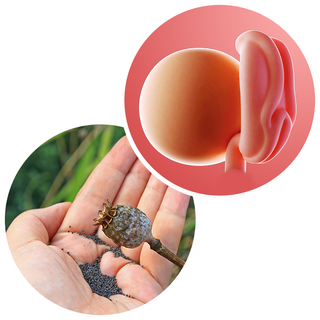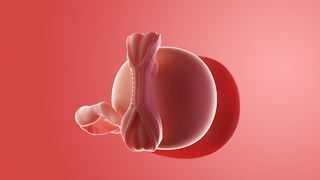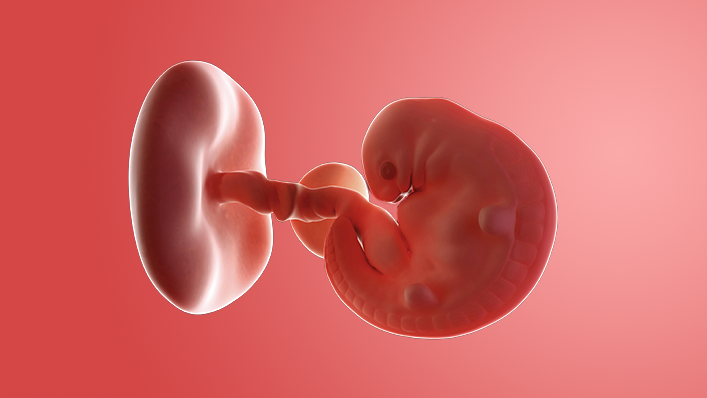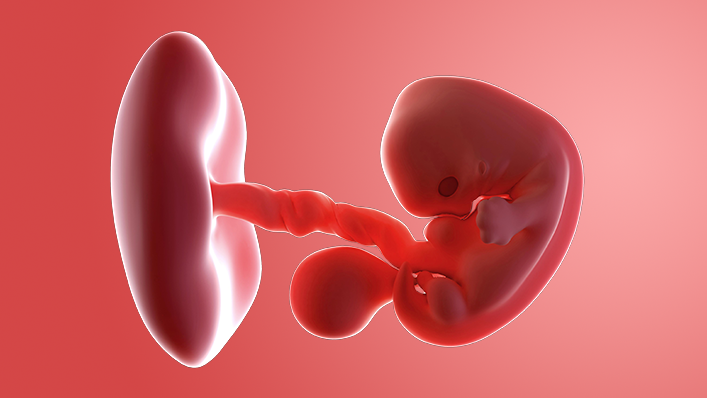Week 4
To the outside world, you'll look much the same as usual – but on the inside, your embryo is about the size of a poppy seed and some amazing things are happening.
For information on your pregnancy journey, sign up for regular emails tailored to your stage of pregnancy or baby's age.
What's happening in my body?
You probably don't look pregnant yet. If it's your first pregnancy you might not start showing until at least week 12.
However, if this isn't your first baby, you may start showing sooner, as the muscles in your uterus (womb) and belly may have been stretched from your last pregnancy.
Pregnancy is dated from the first day of your last period.
Am I pregnant?
Wondering when to take a pregnancy test? Some of the home tests can tell you if you're pregnant after about 3 and a half weeks – and are 99% accurate.
Early pregnancy symptoms (at 4 weeks)
To start with, you may not have any symptoms at all.
When the pregnancy hormone "human chorionic gonadotrophin" starts to kick in, you may experience early pregnancy symptoms.
During your 1st trimester, which is up until week 12, you may experience:
- a missed period (often one of the first signs of pregnancy)
- a metallic taste in your mouth
- sore breasts
- nausea – also known as morning sickness, although you can experience it at any time (read about morning sickness in week 6)
- tiredness
- new food likes and dislikes
- a heightened sense of smell
- needing to pee more frequently
- a milky white pregnancy discharge from your vagina
- light spotting as the fertilised egg burrows into your uterus (see your doctor if you get bleeding during pregnancy)
- cramping, a bit like period pains
- darkened skin on your face or brown patches – this is known as chloasma faciei or the "mask of pregnancy"
- thicker and shinier hair
- bloating (read about dealing with bloating in week 10)
If you think you could be pregnant but haven't noticed any symptoms, you still might be. Everyone's different and nobody else will have a pregnancy just like yours.
What does my baby look like?
Your baby, or embryo, is about 2mm long (about the size of a poppy seed) and growing rapidly in your womb.
It's protected by an amniotic sac, which is filled with cushioning fluid, and attached to a tiny yolk sac that provides all the nourishment it needs.
The outer layer will later develop into the placenta and provide your baby with oxygen and nutrients.

Action stations
Sexually transmitted infections (STIs)
Do you think you or your partner could have an STI? If so, get checked out, as this could affect your baby's development. Talk to your midwife or GP, or visit a sexual health clinic.
Long-term conditions
If you have a long-term health condition, then let your specialist or GP know you're pregnant as soon as possible.
Don't stop taking any regular medication without discussing it with your doctor first.
More in week-by-week

Week 5
Many women realise that they're pregnant around week 5.
More in week-by-week guide to pregnancy


